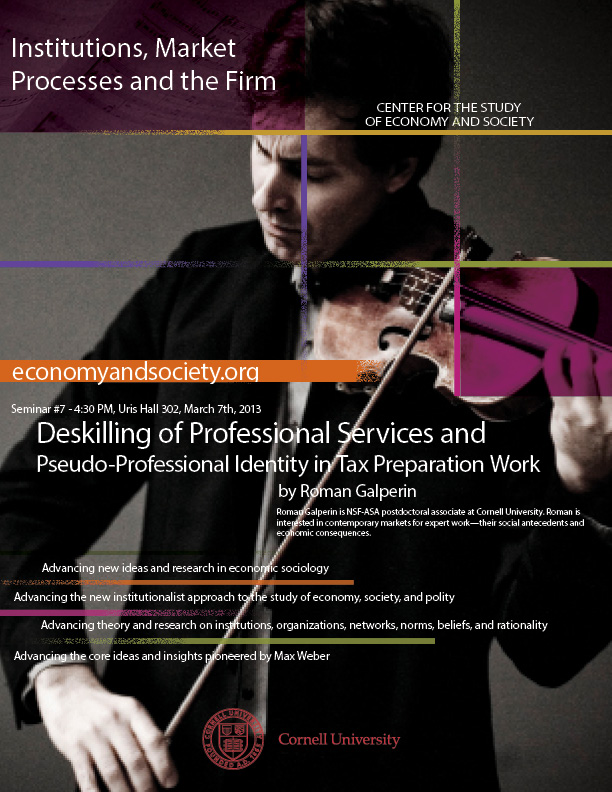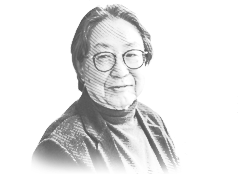Roman Galperin, Cornell University
Deskilling of Professional Services and Pseudo-Professional Identity in Tax Preparation Work
- 4:30PM
- Uris Hall 302

Join us for the 7th seminar in the CSES Institutions, Market Processes, and the Firm Seminar Series.
Abstract
This paper argues that deskilling of professional services creates a paradoxical situation. While the replacement of skilled workers with a combination of unskilled laborers and expertise-encapsulating technology allows firms to reduce the cost of labor and, most importantly, to access the benefits of scale, the very absence of professionals makes it difficult for the firms to then sell the services as professional services. The paper suggests a mechanism by which this paradox, heretofore unaddressed in the discussion of standardization and deskilling of professional service work, is resolved in practice. Using a case of tax preparation work in the U.S., the paper demonstrates that professional identity can emerge in non-professional, low-status workers in the context of low-paying, standardized, deskilled work. Using in-depth interviews (N=50) and a field-based survey-experiment (N=437), the paper investigates the emergence of the pseudo-professional identity and finds that because professionalism is a strong cultural concept which does not require actual professionalization to be effective, playing a professional may be equivalent to being one. The paper further finds that poor work conditions that would seem inadequate for a claim of professional practice and that ostensibly contradict and inhibit professional identity, may promote and sustain it. The paper concludes with a discussion of pseudo-professional identity as a form of organizational control.
About
Roman V. Galperin is a NSF-ASA postdoctoral fellow at Cornell University. Roman is interested in contemporary markets for expert work—their social antecedents and economic consequences. In his research, he combines qualitative and quantitative methods to identify and address several empirical puzzles: 1) How is it that a professional jurisdiction can come to be controlled not by a profession, but by an organization?; 2) How do such (pseudo-) professional identities emerge and how can they be sustained in the context of routinized, low-skill, low-pay work?; and 3) Why would professionals who are engaged in pro bono work systematically favor undeserving clients over those who are most needful and deserving of their help? Each of these questions is at the heart of how professions and organizations interact in today’s economy, and they stand as puzzles for existing theory.

